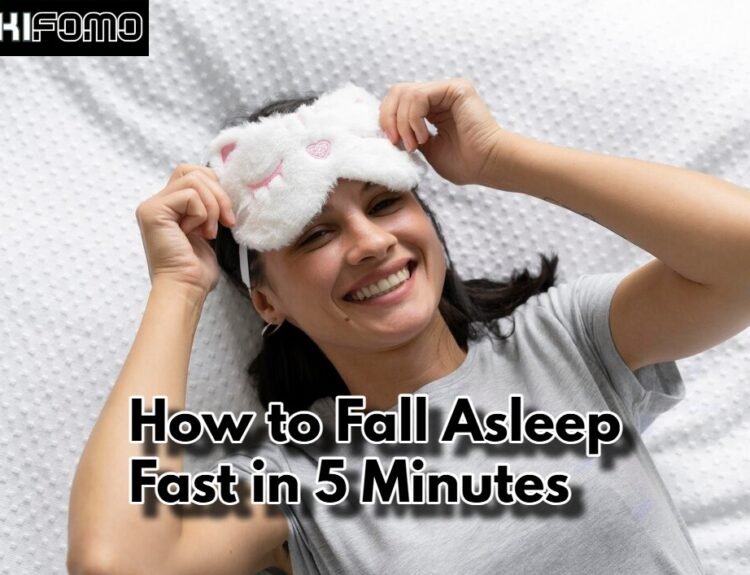How to maximize sleep hygiene
Nowadays, a lot of us regularly avoid getting sufficient amounts of sleep. The demands of work, family, and technology can lead to poor sleep habits, affecting our physical and mental well-being. Sleep-hygiene refers to a set of practices that promote consistent, restful sleep. By adopting effective sleep-hygiene strategies, you can enhance your sleep-quality and improve your overall health. This comprehensive guide will delve into the key components of sleep-hygiene, practical tips, and common pitfalls to avoid.
What is Sleep Hygiene?
Sleep-hygiene refers to several kinds of behaviors and routines that support regular, deep sleep. It involves both environmental factors and personal behaviors that can significantly impact the quality of your sleep. Here are the main components:
- Sleep Environment: Your sleeping space should be comfortable for rest.
- Pre-Sleep Routines: Activities that you engage in before bed can either help or hinder your ability to fall asleep.
- Daily Lifestyle Choices: Your diet, exercise, and stress management all play a role in your sleep-quality.
Understanding these components is the first step in improving your sleep.
ALSO READ: The Ultimate Guide to Side Sleeping: Benefits, Tips, and Expert Insights
Why is Sleep Hygiene Important?

Prioritizing sleep-hygiene is essential for several reasons:
- Cognitive Function: Lack of sleep impairs memory, concentration, and decision-making skills.
- Physical Health: Poor sleep is linked to a range of health issues, including obesity, diabetes, and heart disease.
- Mental Health: Insufficient sleep may increase anxiety and depression, making it more difficult to deal with everyday challenges.
- Overall Well-Being: Quality sleep improves mood, energy levels, and overall quality of life.
In essence, good sleep-hygiene is vital for maintaining both physical and mental health.
Key Components of Good Sleep Hygiene
1. Optimize Your Sleep Environment

Creating an ideal sleep environment is crucial for fostering restful sleep. Here are some key aspects to consider:
- Comfortable Mattress and Pillows: Invest in a high-quality mattress that suits your sleeping style. Your pillows should provide suitable support for your neck and head.
- Control Light: Darkness signals your body that it’s time to sleep. Use blackout curtains or eye masks to eliminate any external light.
- Minimize Noise: Use earplugs or a white noise machine to drown out disruptive sounds.
- Temperature Regulation: The optimal sleeping temperature is typically between 60-67°F (15-19°C). A cooler room can help promote better sleep.
- Declutter Your Space: A tidy bedroom can create a calming atmosphere that makes it easier to relax and fall asleep.
2. Establish a Consistent Sleep Schedule

A consistent sleep schedule helps regulate your body’s internal clock. Here’s how to establish one:
- Set Fixed Sleep and Wake Times: Aim to go to bed and wake up at the same time every day, even on weekends. This consistency reinforces your body’s natural sleep-wake cycle.
- Limit Naps: If you choose to nap, keep it short (20-30 minutes) and avoid napping late in the afternoon.
3. Develop a Relaxing Pre-Sleep Routine

Creating a calming pre-sleep routine can signal to your body that it’s time to wind down. Consider these practices:
- Limit Screen Exposure: Avoid screens at least one hour before bedtime. The blue light emitted by devices can interfere with melatonin production, making it harder to fall asleep.
- Engage in Relaxation Techniques: Activities such as reading, deep breathing, or gentle yoga can help you unwind.
- Take a Warm Bath: A warm bath can raise your body temperature, and the subsequent drop can help you feel sleepy.
4. Monitor Your Diet and Exercise

What you consume throughout the day can have a significant impact on your sleep-quality:
- Limit Caffeine and Nicotine: Both are stimulants that can disrupt your ability to fall asleep. Aim to avoid these substances in the afternoon and evening.
- Be Mindful of Alcohol: While it may help you fall asleep initially, alcohol can disrupt your sleep cycle later in the night.
- Eat Light in the Evening: Heavy meals can lead to discomfort and indigestion, making it difficult to fall asleep. Aim to finish dinner at least 2-3 hours before bedtime.
- Regular Exercise: Engaging in regular physical activity can help you fall asleep faster and enjoy deeper sleep. However, try to avoid intense workouts close to bedtime.
5. Manage Stress and Anxiety

Stress and anxiety are major difficulties to good sleep. Consider these strategies to manage them:
- Practice Mindfulness: Techniques such as meditation and deep breathing can help reduce stress and improve sleep-quality.
- Keep a Journal: Writing down your thoughts and worries before bed can clear your mind and promote relaxation.
- Seek Professional Help: If anxiety or stress becomes overwhelming, consider consulting a mental health professional for support.
Common Mistakes in Sleep Hygiene
To improve your sleep-quality, avoid these common mistakes:
- Irregular Sleep Patterns: Frequently changing your sleep schedule can disrupt your circadian rhythm, making it harder to fall asleep and wake up refreshed.
- Excessive Napping: Long or late naps can interfere with your ability to fall asleep at night. If you need to nap, limit it to 20-30 minutes.
- Ignoring Sleep Disorders: If you suspect you have a sleep disorder, such as sleep apnea, don’t rely solely on sleep-hygiene practices. Consult a healthcare professional for proper evaluation and treatment.
Additional Tips for Improving Sleep Hygiene
- Limit Fluid Intake Before Bed: Reducing liquid consumption in the evening can help minimize nighttime trips to the bathroom.
- Create a Sleep-Friendly Atmosphere: Use calming scents, such as lavender or chamomile, to promote relaxation.
- Get Natural Light Exposure: Spend time outdoors during the day to help regulate your sleep-wake cycle and boost mood.
1. Use Technology Wisely

While technology can sometimes be a sleep disruptor, it can also help improve sleep-hygiene:
- Sleep Tracking Apps: Consider using apps to track your sleep patterns and identify areas for improvement.
- Meditation and Relaxation Apps: These can guide you through calming exercises that prepare you for sleep.
2. Be Mindful of Sleep Supplements

If you’re considering sleep aids or supplements, it’s important to do so wisely:
- Consult a Healthcare Professional: Always talk to a doctor before starting any sleep supplements, especially if you’re on medication or have underlying health issues.
- Natural Remedies: Some people find relief with herbal remedies like valerian root or passionflower, but results can vary.
3. Educate Yourself About Sleep

Understanding the science of sleep can empower you to make better choices:
- Learn About Sleep Cycles: Familiarize yourself with the different stages of sleep (REM and non-REM) and how they affect your overall rest.
- Stay Informed: Read books or articles about sleep health to deepen your understanding and find new strategies.
Conclusion
Improving your sleep-quality through effective sleep hygiene is a valuable investment in your overall health and well-being. By creating an optimal sleep environment, establishing a consistent schedule, and managing stress effectively, you can pave the way for restorative sleep. Remember, it takes time to develop new habits, so be patient with yourself as you implement these practices. With dedication and commitment, you’ll be well on your way to enjoying the restful, rejuvenating sleep you deserve.
Love what you read? Join our community! Like, share, and follow Wikifomo for more exciting insights. Your support encourages our passion! Thank You.
Frequently Asked Questions (FAQs)
How long does it take to see improvements in sleep quality?
Improvements in sleep-quality can usually be seen within a few weeks of making positive changes to sleep habits.
Can sleep hygiene practices help with insomnia?
Yes, many individuals find that implementing sleep hygiene practices significantly alleviates their insomnia symptoms.
Is it okay to sleep in on weekends?
While it may be tempting to catch up on sleep, maintaining a consistent sleep schedule is best for supporting your body’s natural rhythm.
What are some natural sleep aids?
Common natural sleep aids include herbal teas (like chamomile), melatonin supplements, and aromatherapy (such as lavender).
When should I seek professional help for sleep issues?
If sleep problems persist despite practicing good sleep hygiene, or if they significantly impact your daily life, consult a healthcare professional for further evaluation.



